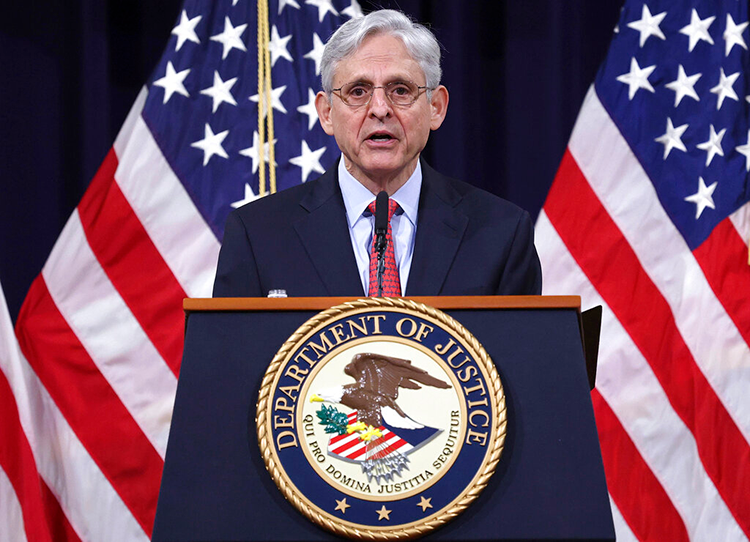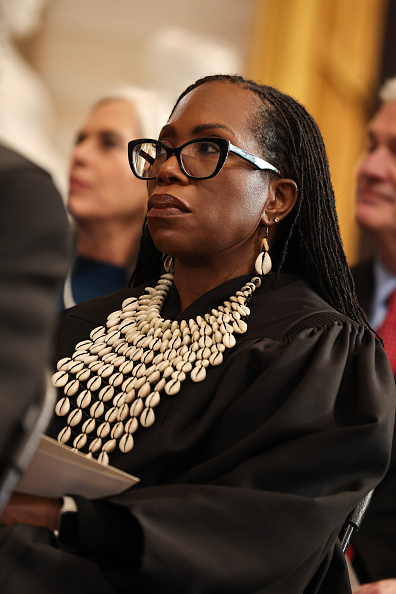AG Garland announces moratorium on federal executions; firing squad rule examined

Attorney General Merrick Garland says “serious concerns” have been raised about the death penalty. (Win McNamee/Pool via AP)
Attorney General Merrick Garland announced Thursday that he is placing or moratorium on federal executions to allow for a review of changes made during the Trump administration.
The review will consider November 2020 changes that allow some executions to be carried out by electrocution, nitrogen gas or firing squad, according to a press release and a memo by Garland. The rule allows federal executions to be carried out in any manner allowed in the state where the death sentence was imposed.
The review will also consider a July 2019 addendum that provided for the use of a single drug, pentobarbital, in federal executions. The review will assess the risk of pain and suffering associated with the drug.
Garland’s memo noted the U.S. Supreme Court found last year that the risk of painful pulmonary edema was insufficient to justify its intervention to stop an execution. Garland said the issue nonetheless raises “important questions about our responsibility to treat individuals humanely and avoid unnecessary pain and suffering.”
Garland’s memo said “serious concerns” have been raised about the death penalty that deserve “careful study and evaluation” by lawmakers. Those concerns include arbitrariness in application of the death penalty, disparate impact on minorities, and a “troubling number” of exonerations.
“In the meantime, the department must take care to scrupulously maintain our commitment to fairness and humane treatment in the administration of existing federal laws governing capital sentences,” he wrote.
The Associated Press and NBC are among publications covering Garland’s announcement. They point out that the moratorium doesn’t stop the federal government from seeking a capital sentence.
The Justice Department is seeking to reinstate the death penalty for Boston Marathon bomber Dzhokhar Tsarnaev in a pending Supreme Court case.
Write a letter to the editor, share a story tip or update, or report an error.


